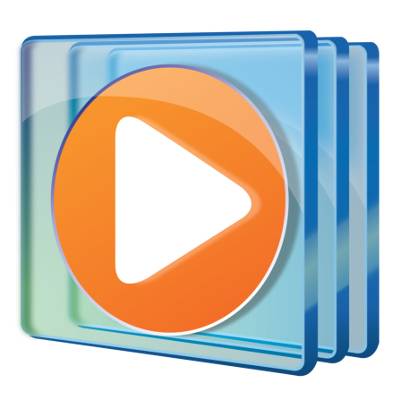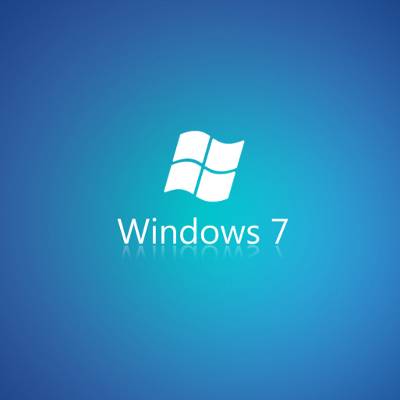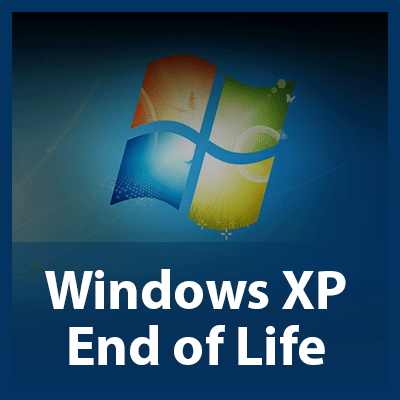Here’s something that you might have noticed about opening Windows applications on your desktop; by default, they will generally open in a smaller window, giving you the ability to customize their size as you see fit. If you want a full size Window, it’s as easy as clicking on the maximize button in the top-right corner, but what if you didn’t want to go through this every time you open the app? There’s a solution for this, and we’ll help you find it.
Macro Systems Blog
 If you’re the owner of a small or medium-sized business, mark your calendars for July 14th. This is when Microsoft will stop supporting the 12-year-old server operating system, Windows Server 2003. Any business that is still running this ancient OS needs to upgrade to a more recent one before the end-of-support date arrives.
If you’re the owner of a small or medium-sized business, mark your calendars for July 14th. This is when Microsoft will stop supporting the 12-year-old server operating system, Windows Server 2003. Any business that is still running this ancient OS needs to upgrade to a more recent one before the end-of-support date arrives.
 All operating systems change over time, and upgrades are eventually made available. But in light of Windows 10, Windows Threshold, or whatever their new OS’s final incarnation is going to be called, one has to wonder if Microsoft has ever considered free upgrades to the Windows operating system family tree.
All operating systems change over time, and upgrades are eventually made available. But in light of Windows 10, Windows Threshold, or whatever their new OS’s final incarnation is going to be called, one has to wonder if Microsoft has ever considered free upgrades to the Windows operating system family tree.
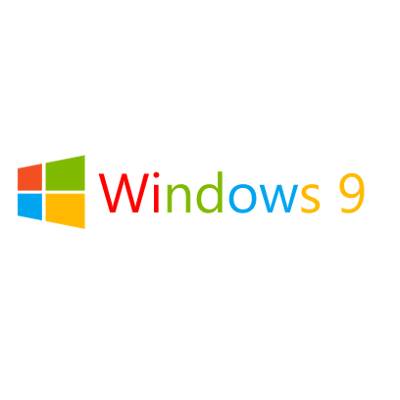 Well, now that we've got your attention, it's a good time to mention that leaked photos and a video of what may be Windows 9, currently called Threshold, have been leaked to the web. As the next entry in the Windows family of operating systems, it has been highly anticipated since the return of a Start menu was displayed in April 2014. Microsoft has a lot of ground to cover after Windows 8, but will Windows 9/Threshold deliver?
Well, now that we've got your attention, it's a good time to mention that leaked photos and a video of what may be Windows 9, currently called Threshold, have been leaked to the web. As the next entry in the Windows family of operating systems, it has been highly anticipated since the return of a Start menu was displayed in April 2014. Microsoft has a lot of ground to cover after Windows 8, but will Windows 9/Threshold deliver?
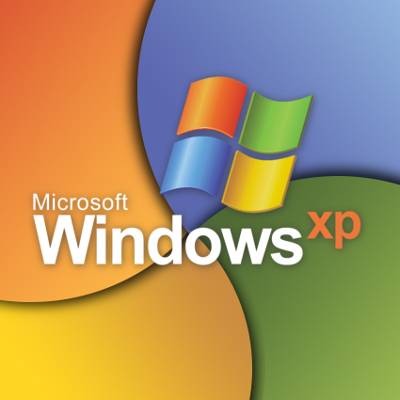 The news that Microsoft no longer supports Windows XP, one of its most successful operating systems, was a great blow to many who loved the software. The greatest blow, however, will likely prove to be hackers, who will be able to break into the system now that Microsoft is not providing security patches.
The news that Microsoft no longer supports Windows XP, one of its most successful operating systems, was a great blow to many who loved the software. The greatest blow, however, will likely prove to be hackers, who will be able to break into the system now that Microsoft is not providing security patches.
 The Internet Explorer vulnerability that was discovered early last week was so intense that the United States and United Kingdom deemed it necessary to issue a warning. Found in six different versions of Internet Explorer, anyone who used the browser was at risk. The bug allowed hackers to potentially take over your computer and install malware or steal personal information. But fear not - on May 1st 2014, Microsoft issued a patch that ends this bug's reign of terror.
The Internet Explorer vulnerability that was discovered early last week was so intense that the United States and United Kingdom deemed it necessary to issue a warning. Found in six different versions of Internet Explorer, anyone who used the browser was at risk. The bug allowed hackers to potentially take over your computer and install malware or steal personal information. But fear not - on May 1st 2014, Microsoft issued a patch that ends this bug's reign of terror.
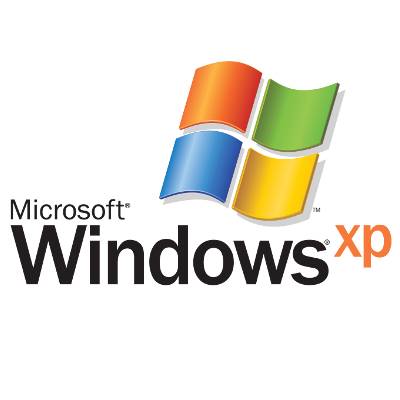 The end-of-support date for Windows XP is April 8. If you're still running XP, then you likely have a strong reason for it. Although, your reason may not be strong enough in light of how big of a security risk XP will be. Let's dismantle three of the most common reasons people are choosing to stick with XP.
The end-of-support date for Windows XP is April 8. If you're still running XP, then you likely have a strong reason for it. Although, your reason may not be strong enough in light of how big of a security risk XP will be. Let's dismantle three of the most common reasons people are choosing to stick with XP.
 The freeze of winter is hard on everyone and everything, especially windows. Seeing that on Tuesday, 90% of the US was literally frozen due to what meteorologists are calling a "polar vortex," we thought this would be the perfect time to talk about how to prevent your Windows from freezing with managed IT services!
The freeze of winter is hard on everyone and everything, especially windows. Seeing that on Tuesday, 90% of the US was literally frozen due to what meteorologists are calling a "polar vortex," we thought this would be the perfect time to talk about how to prevent your Windows from freezing with managed IT services!
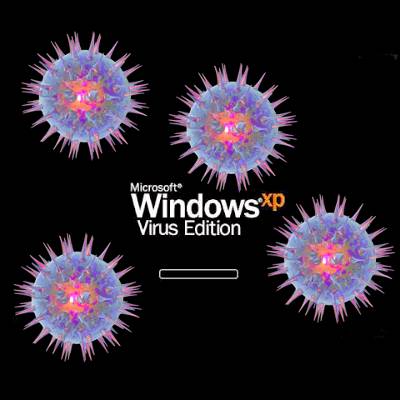 Windows XP is slated by Microsoft to have its support end on April 8, 2014. This means that everyone using XP beyond this date will no longer be able to receive security updates from Microsoft, which will turn Windows XP into a liability. You may be waiting until April to upgrade, but as you will see, even waiting a few months to upgrade is a risky move.
Windows XP is slated by Microsoft to have its support end on April 8, 2014. This means that everyone using XP beyond this date will no longer be able to receive security updates from Microsoft, which will turn Windows XP into a liability. You may be waiting until April to upgrade, but as you will see, even waiting a few months to upgrade is a risky move.
 In October, Microsoft released their Windows Server 2012 R2 offering. To compliment this big release, Microsoft upgraded their Windows Server Essentials software by adding some cool new features and slapping R2 at the end. Windows Server 2012 R2 Essentials gives your business the option to deploy Essentials features in a larger domain as a Windows Server role.
In October, Microsoft released their Windows Server 2012 R2 offering. To compliment this big release, Microsoft upgraded their Windows Server Essentials software by adding some cool new features and slapping R2 at the end. Windows Server 2012 R2 Essentials gives your business the option to deploy Essentials features in a larger domain as a Windows Server role.
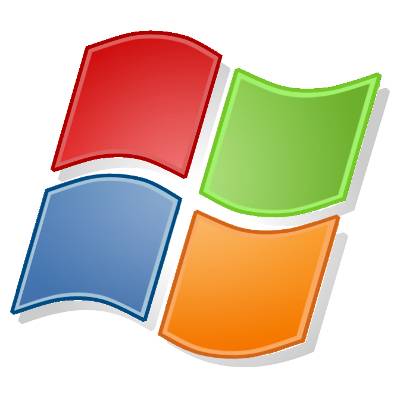 How new are the windows in your home? Do you have problems when you're trying to open them, such as they don't stay up or simply won't budge? How about when you walk by them, do you feel a draft because their seals are shot? When this happens, what's the first thing you think? More than likely it's "I need to replace them ASAP". If you think this way when it comes to your home, then why not the same when it comes to your business?
How new are the windows in your home? Do you have problems when you're trying to open them, such as they don't stay up or simply won't budge? How about when you walk by them, do you feel a draft because their seals are shot? When this happens, what's the first thing you think? More than likely it's "I need to replace them ASAP". If you think this way when it comes to your home, then why not the same when it comes to your business?
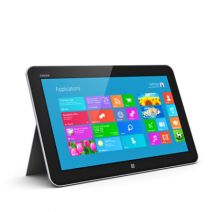 In part one, we provided an overview of Microsoft’s newest foray into mobile computing and how they’ve finally arrived after years of trying to implement a mobile strategy. In this part, we will provide you with specific technology that your business can potentially employ to utilize Windows-based tablets to improve your organization’s mobility.
In part one, we provided an overview of Microsoft’s newest foray into mobile computing and how they’ve finally arrived after years of trying to implement a mobile strategy. In this part, we will provide you with specific technology that your business can potentially employ to utilize Windows-based tablets to improve your organization’s mobility.
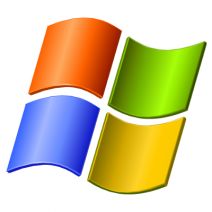 With Windows 10 to be launched on July 29th, all thoughts are drifting toward the inevitable upgrade to Microsoft’s brand-new operating system. However, we’d like to take a moment to travel back in time to last spring, when Windows XP expired. Remember how we warned that your business would need to shell out big bucks for custom support if you want to keep running Windows XP? It turns out that there are some who just can’t let go of the expired OS; including the US Navy.
With Windows 10 to be launched on July 29th, all thoughts are drifting toward the inevitable upgrade to Microsoft’s brand-new operating system. However, we’d like to take a moment to travel back in time to last spring, when Windows XP expired. Remember how we warned that your business would need to shell out big bucks for custom support if you want to keep running Windows XP? It turns out that there are some who just can’t let go of the expired OS; including the US Navy.
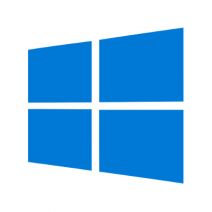 The most recent edition to the Windows family of operating systems, Windows 10, offers several new features that appeal to business owners. Yet, many businesses are still skeptical about adopting it for their entire infrastructure. Still, there’s good news abound for Microsoft’s OS, as compared to the unpopular Windows 8, Windows 10 is being tested on twice as many computers following its release date.
The most recent edition to the Windows family of operating systems, Windows 10, offers several new features that appeal to business owners. Yet, many businesses are still skeptical about adopting it for their entire infrastructure. Still, there’s good news abound for Microsoft’s OS, as compared to the unpopular Windows 8, Windows 10 is being tested on twice as many computers following its release date.
 Administrator privileges. It’s not a flashy IT-related topic that gets reported on a whole lot. Due to the critical role it plays in protecting your network, administrator privileges should be front and center with every company’s network security plan. Especially since a recent study was published relating the majority of Windows operating flaws to mismanaged administrator privileges.
Administrator privileges. It’s not a flashy IT-related topic that gets reported on a whole lot. Due to the critical role it plays in protecting your network, administrator privileges should be front and center with every company’s network security plan. Especially since a recent study was published relating the majority of Windows operating flaws to mismanaged administrator privileges.
 Windows 95 changed the way that consumers saw personal computing, and it heavily influenced future versions of Microsoft’s Windows operating system. Over twenty years later, you can expect to see significant changes and improvements, to the point where those who weren’t exposed to older technology don’t have any clue what it is. Nowhere is this more painfully true than watching how teens react to Windows 95.
Windows 95 changed the way that consumers saw personal computing, and it heavily influenced future versions of Microsoft’s Windows operating system. Over twenty years later, you can expect to see significant changes and improvements, to the point where those who weren’t exposed to older technology don’t have any clue what it is. Nowhere is this more painfully true than watching how teens react to Windows 95.


